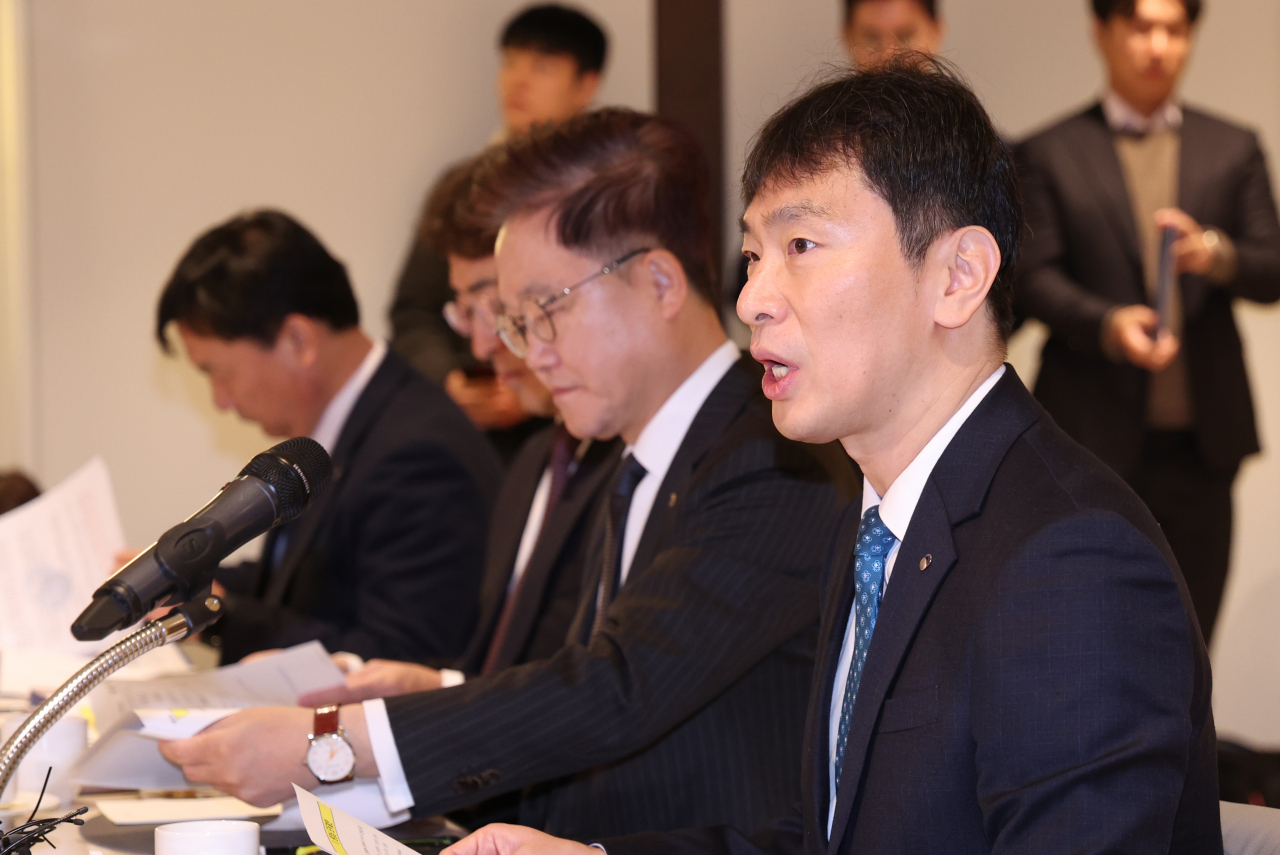Financial regulator reaffirms efforts to address risks of short-term property loans
By YonhapPublished : Feb. 28, 2024 - 10:41

The head of the country's financial regulator vowed continued efforts Wednesday to quickly address risks related to real estate project financing loans.
Lee Bok-hyun, governor of the Financial Supervisory Service, stressed that such efforts will help end the capital crunch caused by PF loans related risks.
"We are witnessing signs of a capital crunch as excessive amounts of money invested in real estate PF remain tethered," he told a meeting with the heads of financial think tanks.
"Therefore, the Financial Supervisory Service is revising its evaluation standards to enable impartial evaluation of PF projects for their feasibility," he added.
Lee said businesses that are invested in weak projects will be encouraged to swiftly reconstruct or terminate their projects while boosting their reserves for a potential loss.
"We expect there to be exemplary cases of PF business restructuring in the not-too-distant future," the FSS chief said.
Lee also reaffirmed efforts to curb the rise in household debt.
"(The FSS) seeks to establish a practice of extending loans based on the borrowers' ability to repay by reinforcing the debt service ratio," he said, noting the financial regulator began implementing a new formula for a floating rate stress DSR at the start of this week.
The DSR measures how much a borrower has to pay for principal and interest in proportion to his or her yearly income, which serves as a ceiling on aggregate lending.
The DSR is currently at 40 percent, meaning the principal and interest payments of any borrower cannot exceed 40 percent of their annual income.
The stress DSR is set to be implemented in phases, and when it is fully implemented at the start of next year, it is expected to significantly lower the ceiling. (Yonhap)




















